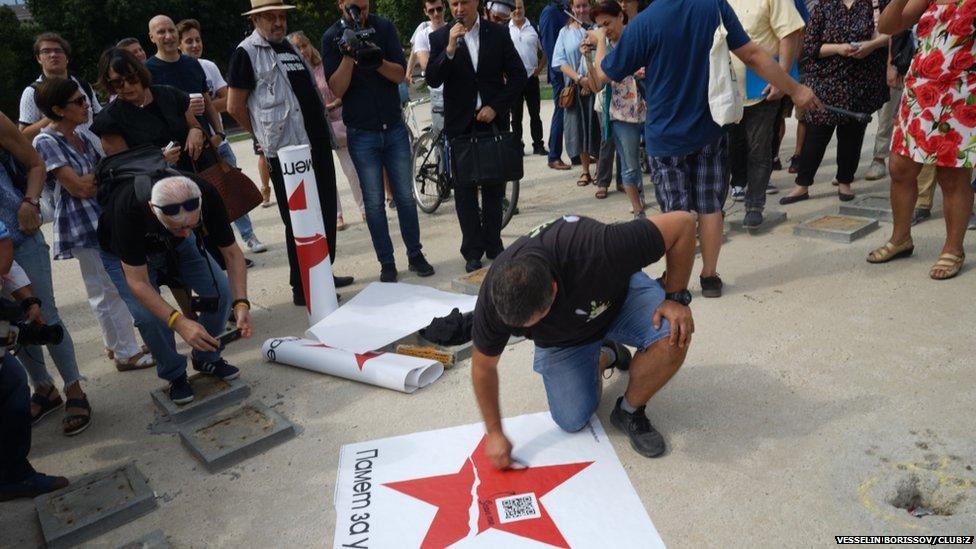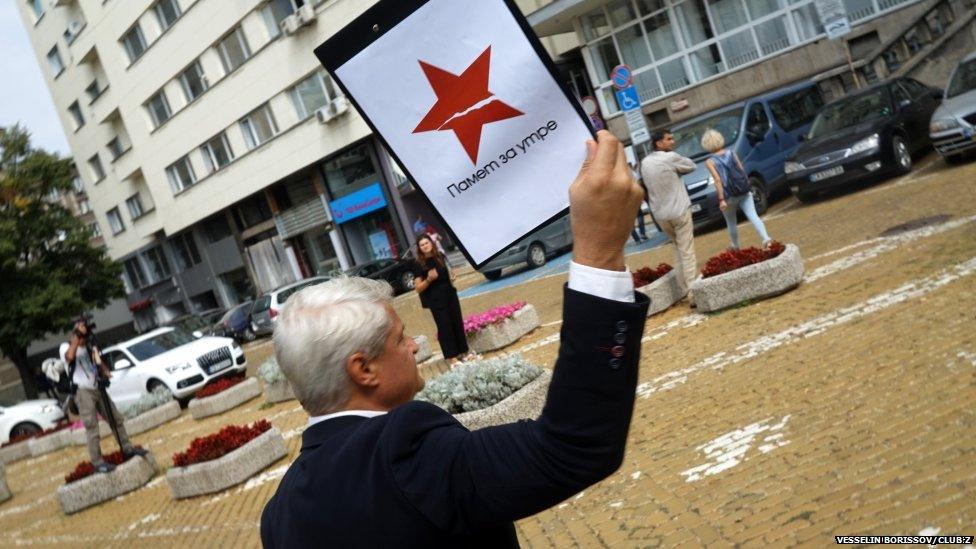Broken stars mark Bulgarian communism anniversary
- Published

Protesters want the public to remember
Protesters have marked the 9 September anniversary of the communist takeover of Bulgaria after World War II with a march through the capital Sofia to highlight its legacy.
The Memory for Tomorrow initiative, set up by a group of historians and public figures, chose a group of 99 people born after the fall of communism to place broken red stars at key buildings connected with the country's recent past, the Bulgarian media report, external.
It chose a broken version of the five-pointed star - an international symbol of communism - as a visual calling card for the younger generation to understand and remember the past.
"Our idea is to show that the star is no less ominous a symbol than the Nazi swastika, external. It is not good that today's younger generation accepts the abundance of these stars in our civic environment as something natural and normal," historian Evelina Kelbecheva told the daily Dnevnik.
Among the places adorned with the broken stars were the mausoleum of the country's first communist leader Georgy Dimitrov, the building housing the former secret police prison, and the Memorial to the Victims of the Communist Regime.
'Dark times'
The organisers say they want to use "the language of buildings" that have retained the memory of their former residents to convey the repressive "dark times" of communist-era Bulgaria.
"People lie, facts are manipulated, but buildings are impartial witnesses to the era, external. They keep the spirit and truth of their times alive," the march organisers write on their Facebook page.
They are concerned that the generation born after the fall of communism has no personal memory of the era. "We, their parents, are to blame for our actions or inactions", they conclude.
You may also be interested in:
But not everyone shares that sentiment.
The anniversary "always unlocks diametrically opposed feelings... as for many people, it is a day of victory against fascism, external, and a new beginning for freedom, peace and socialism," as the Dnes news site reports.

'Memory for tomorrow'
An exhibition at the Russian Cultural Centre in Sofia portraying 9 September as a day of liberation prompted a street protest against "attempts to manipulate history" and a diplomatic spat.
The foreign ministry condemned the exhibition's narrative of liberation from Nazism, and Russia in turn accused Bulgaria of "re-writing history, external".
Over the weekend, Sofia's Monument to the Soviet Army, which has often been used as a canvass for protest art, was graffiti-sprayed once again, only to be cleaned up the next day.
Textbooks revised
Back in August, the Bulgarian media reported that modern history textbooks will highlight the law declaring communist rule to have been a criminal regime, external for the first time.
The 2000 law said communism's violation of basic human rights and persecution of its opponents justified declaring it to have been a criminal regime.
The decision to put communist rule on the national curriculum followed a petition and protests denouncing "attempts to omit key facts and events, external" about the totalitarian period from school books.
Reporting by Krassi Twigg
Next story: Dutch urged to 'make do and mend'
Use #NewsfromElsewhere to stay up-to-date with our reports via Twitter, external.